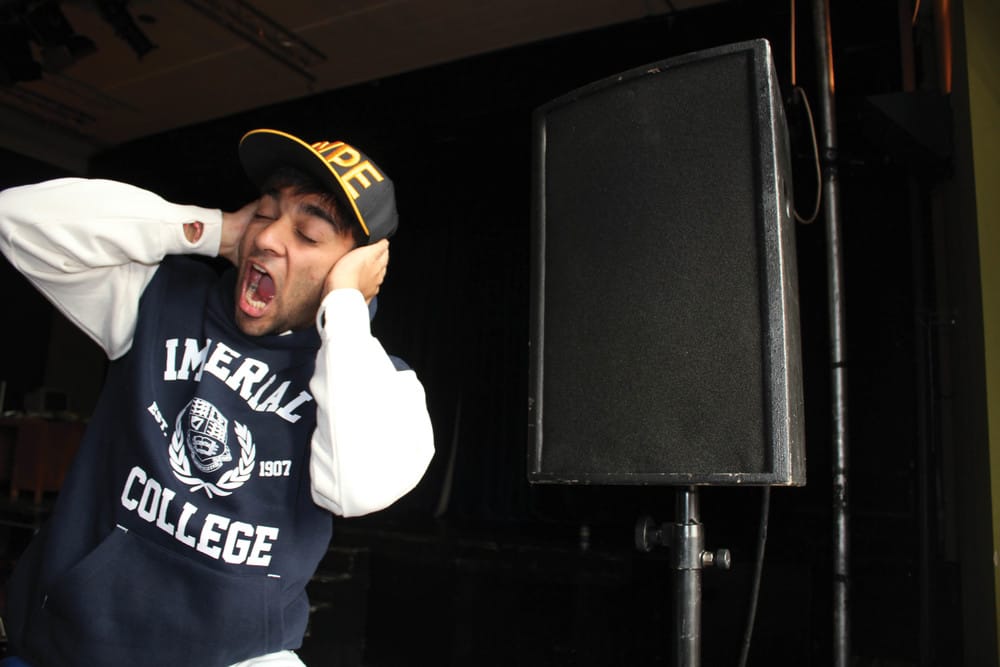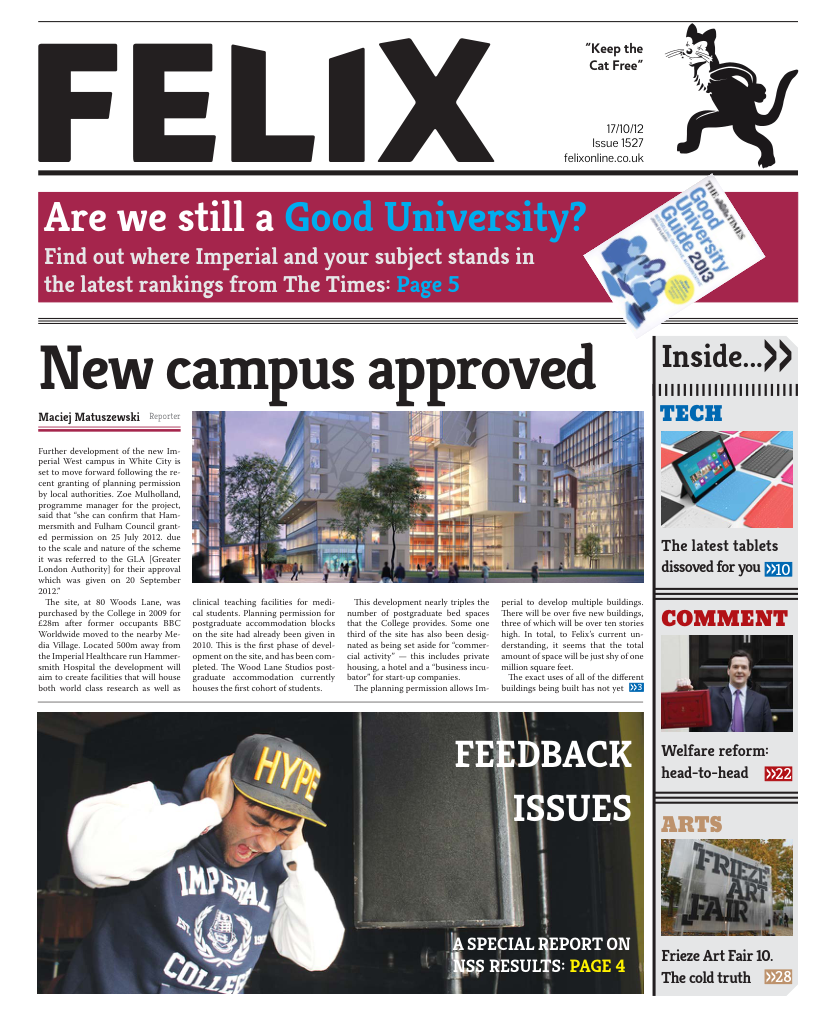Feedback woes highlighted
Navid Nabijou probes the latest results from the NSS. See the paper for the tables.

The National Student Survey (NSS) was established in 2005 by HEFCE (the body administering government funding of UK universities), in order to independently gather feedback from students about their institutions. It is carried out every year in the spring: final-year undergraduates in almost every university in the UK answer questions spanning a broad range of topics, from the quality of teaching and assessment, to the adequacy of the learning resources available, to their satisfaction with the Union. Response is generally high: last year, two-thirds of eligible students took the survey. Once the results have been collected and processed, they are released to the public.
Since the survey is the single biggest source of student feedback available to universities, college administrators study its results carefully. The survey has tangible influence, too, since the scores are a significant factor in the calculation of university league table rankings. In the influential Guardian University Guide, for instance, a university’s student satisfaction result comprises 25% of its overall score. Imperial’s poor showing in these polls have been the primary reason for its recent plummet in the league tables.
How did we do?
An analysis of the 2012 results makes for some interesting reading. At Imperial, 86% of respondents agreed that “overall, I am satisfied with the quality of my course.” This result is only marginally lower than the English average of 87%, though significantly lower than corresponding scores from institutions of similar prestige as Imperial.
Analysing responses to the survey’s more specific questions indicates the areas where the College is lacking. As in the past, student feedback was a major stumbling block. Only 55% of students said they were happy with the feedback they had received – the second lowest score in the country. This puts it miles behind its rivals: by comparison, the figures for UCL and Kings are 60 and 61 per cent.
Medics seem to epitomise this discontent at the lack of feedback. While 85% were satisfied with the overall quality of the course, only 32% thought feedback had helped them clarify things they did not understand, and a mere 28% agreed that they had “received detailed comments on my work.” One particularly disgruntled medic, asked by Felix to explain why they were so dissatisfied with her course, replied: “Because our personal tutors don’t know who we are, our lecturers don’t care who we are and we basically just teach ourselves.”
Insufficient feedback has been a recognised issue for a number of years, and the College has taken
Only 55% of students said they were happy with the feedback they had received – the second lowest score in the country
some steps to address it, including imposing deadlines on departments for the returning of marked work. This seems to have beenreflected in this year’s results; 55% compared with 51% last year. Though still not great, this is certainly an improvement.
The teaching scores, too, were far from spectacular – especially when compared with other similarly prestigious institutions. Amongst the elite Russell Group Universities, only students at LSE were more dissatisfied with teaching (while Oxford and Cambridge topped the table in both teaching and feedback scores).
So where does all this dissatisfaction come from? Various causes have been proposed: the usual suspects of a heavy workload and moribund social life inevitably crop up. But when results are compared across different departments, a more nuanced story emerges.
Students in Geology, for instance, did not share their colleague’s general discontent: a whooping 92% were satisfied with the level of feedback, while 98% were satisfied with the overall course: far
Medics: 85% satisfied with the overall quality of the course, only 32% satisfied with feedback
and away the highest score in College. Felix talked to some Geologists to find out what their department was doing right:
“As far as I know we’re the only department to have an ‘Academic Tutor’ who oversees all aspects of the undergraduate degree. It’s effectively the same as a Director of Undergraduate Studies – however, from what I’ve heard, ours is a lot more dedicated to their job than others. She knows everyone’s names from interview day, and will still keep in touch after graduation.
“I think people knowing each other is crucial to satisfaction with the degree course. If you’re friends with so many people in every other year as well as your own, you’re going to enjoy your time in the department. Obviously having such a small department helps with things like this, however I think the social side of the RSMU contributes significantly by putting on unmissable events that everyone goes to and has a great time at.”
Another student summed up this co-operative atmosphere: “We get a lot of support from Lorraine (the Academic Tutor), everyone gets jobs in oil companies, we have field trips, teachers all get on well with the students and there is a general feeling of camaraderie.”
In contrast, only 42% of Chemistry students found the feedback they received helpful (though 87%
Amongst the elite Russell Group Universities, only students at LSE were more dissatisfied with teaching (while Oxford and Cambridge topped the table in both teaching and feedback scores
thought their teachers were good at explaining things). Felix spoke to a chemistry student, who told us:
“The main problem our year found with feedback was that the quality of the feedback you received depended significantly on which person was marking your script and which lab you were doing at the time.”
Still, there are some signs that things are improving. Results have generally improved from last year. Satisfaction with feedback has risen 4%. Speaking with first and second-year students, it seems that the changes the College has made in the last few years have had a tangible effect.
Of course, these improvements won’t be fully seen in the survey results for another few years. And in any case, it doesn’t reflect well on the College that it took some shocking survey results – and a consequent plunge in theleague tables – for them to take student satisfaction seriously.
Doug Hunt, Deputy President (Education) gave Felix this statement about the NSS: “Imperial College Union believes that the NSS is highly useful when taking into account the changes that have been made in some departments in order to improve their NSS score especially with respect to assessment and feedback. One example of this is the restructuring of the chemistry course that has proven highly popular with students who have benefited from this.
However the Union disagrees with heavily weighting the NSS satisfaction rankings in university league tables, which we feelmisleads able prospective students and potentially devalues our highly talented students and alumni, who are of a world class quality.”








